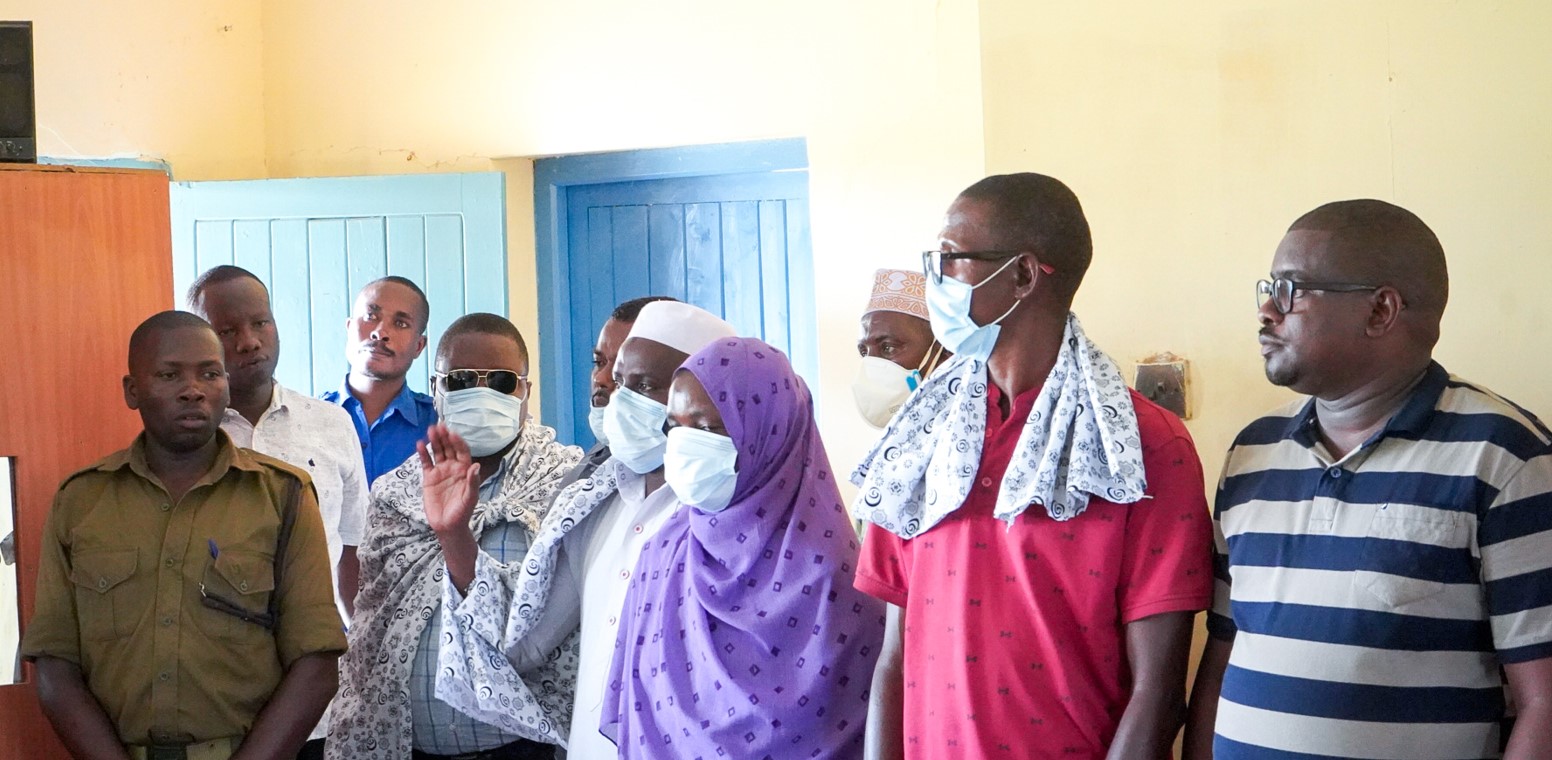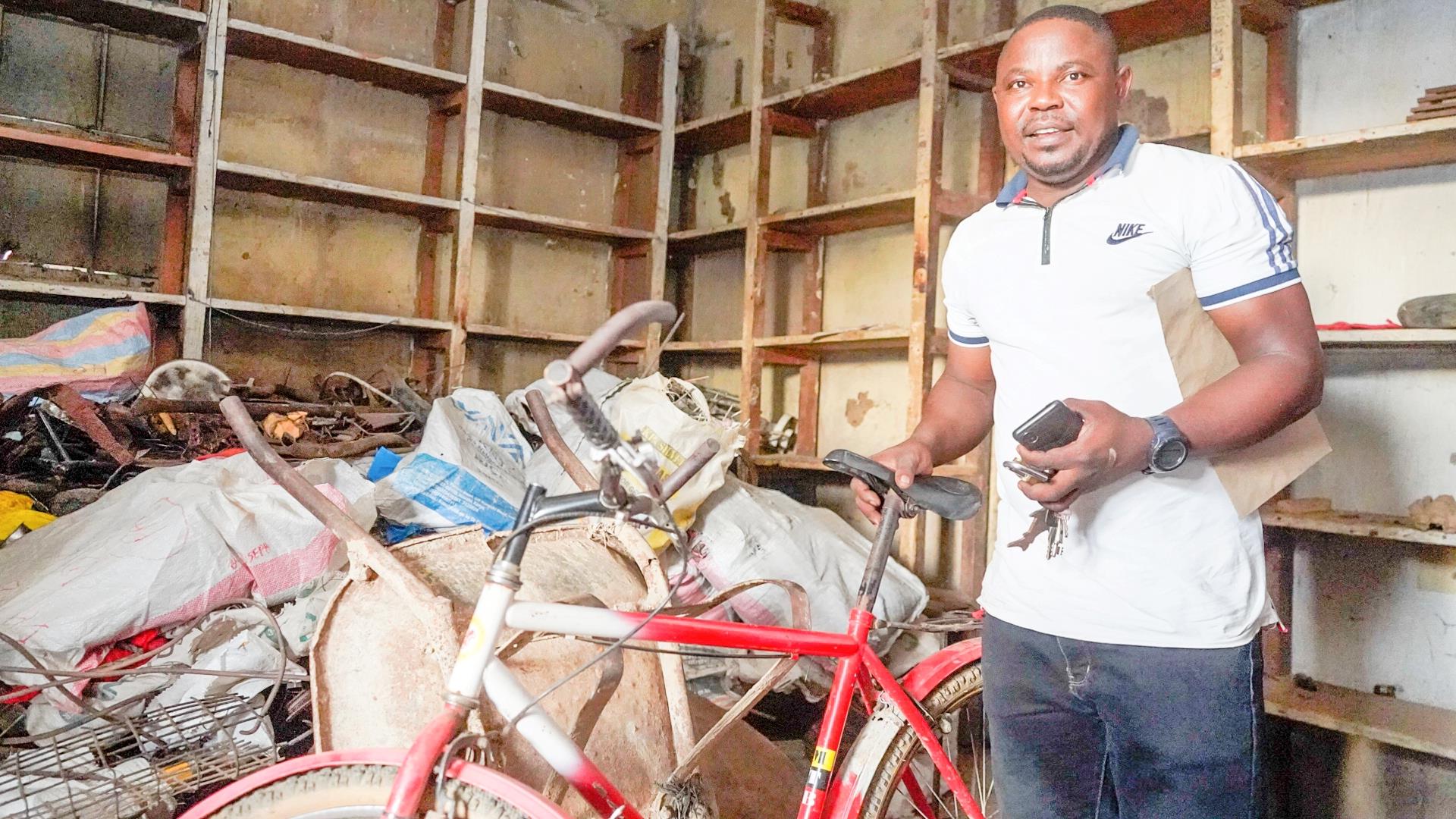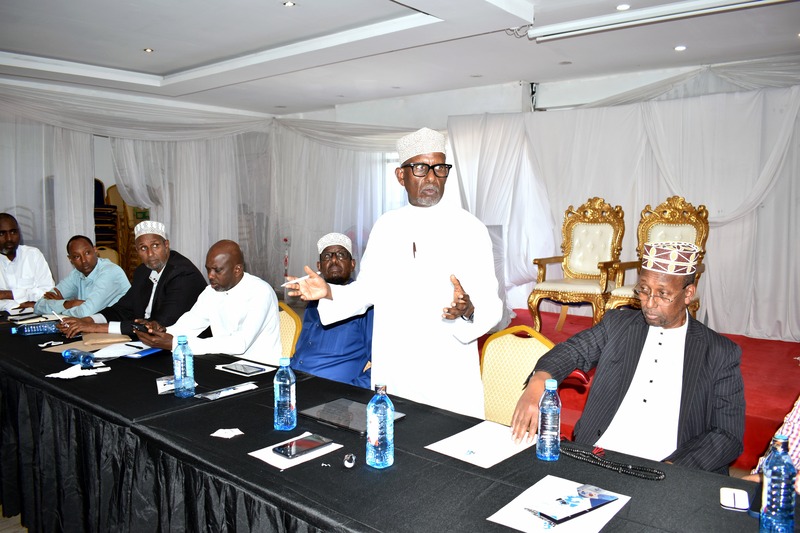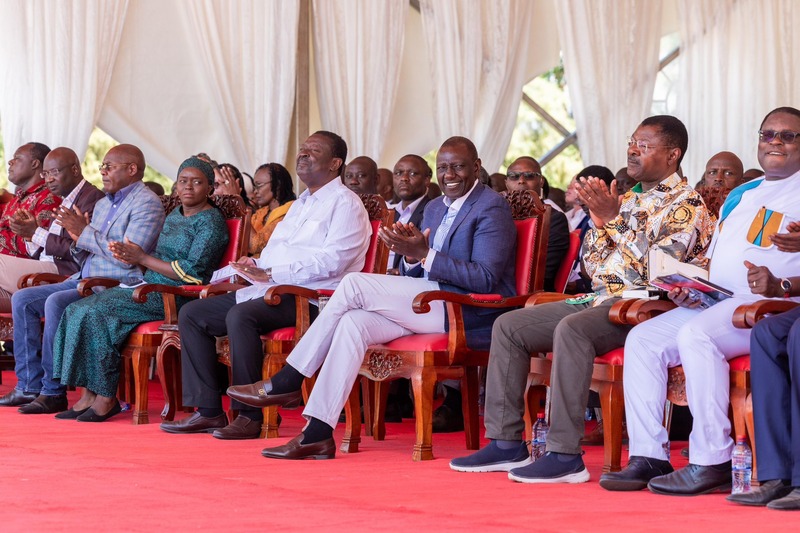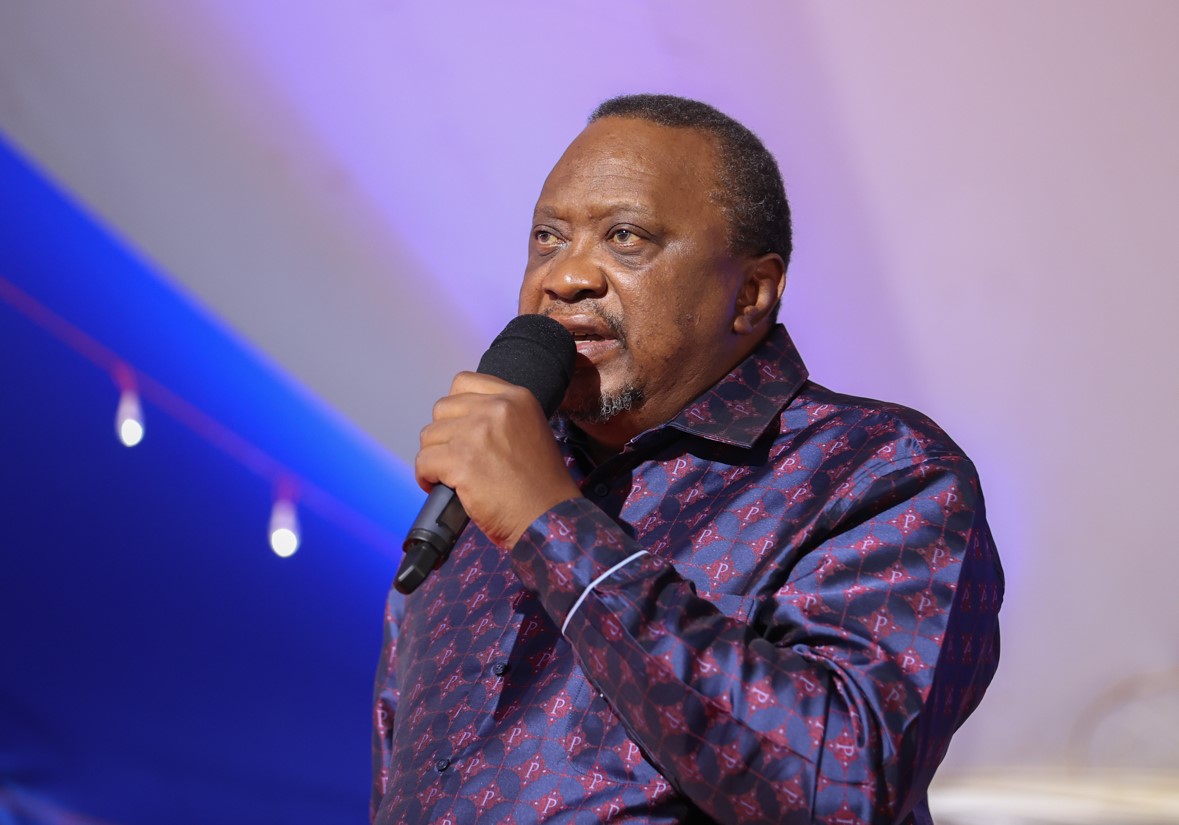House team rejects NADCO proposal for official opposition leader, insists on referendum
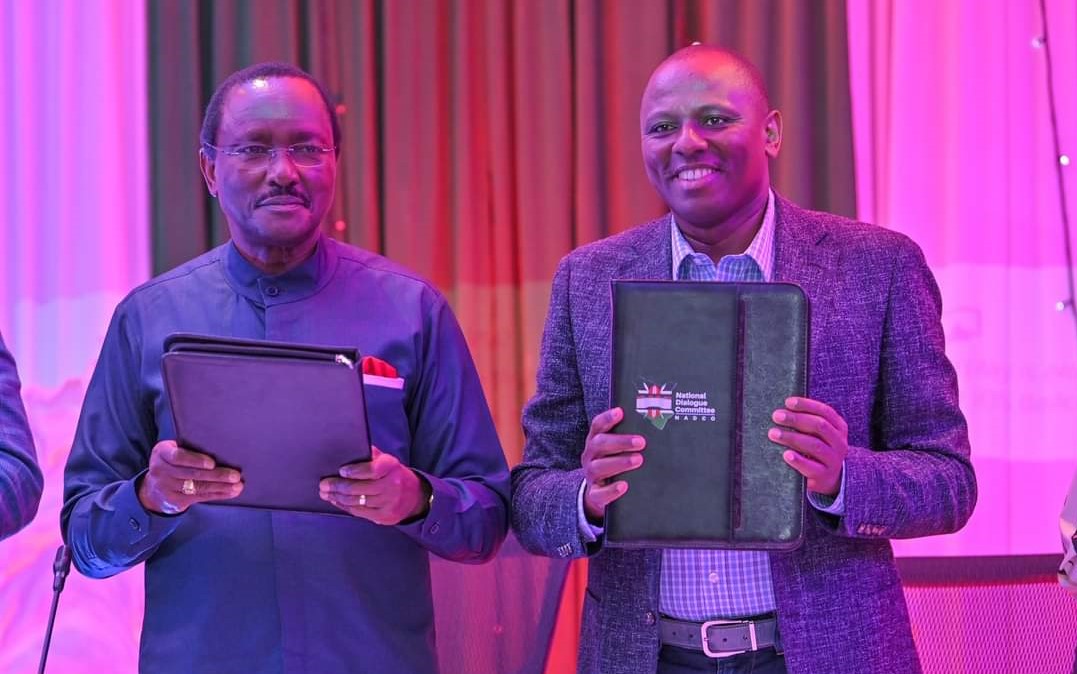
This is a major setback to both President William Ruto and Opposition leader Raila Odinga, who had championed the proposal of the creation of an official position for the Leader of the Opposition as part of a broader package of reforms.
The National Assembly's Justice and Legal Affairs Committee has rejected a critical proposal by the National Dialogue Committee (NADCO) to create an official position for the Leader of the Opposition, asserting that such a constitutional change would require a referendum.
This is a major setback to both President William Ruto and Opposition leader Raila Odinga, who had championed the proposal as part of a broader package of reforms.
More To Read
The Committee, in a report tabled in Parliament while considering the Constitution (Amendment) Bill, 2024, emphasised that the creation of the opposition leader's office cannot be done through parliamentary approval alone.
The Bill, which stems from the NADCO report, seeks to introduce new offices such as the Prime Minister and Leader of the Official Opposition, alongside provisions for various government funds, potentially altering Kenya's governmental structure.
"The establishment of such an office in Kenya's current system of governance must be clearly defined in terms of its institutional framework and role," the committee stated in its report.
The members further noted that the proposed opposition leader's role undermines Kenya’s current presidential system and would require extensive changes to the Constitution, thus necessitating a public vote.
In its critique, the committee highlighted a lack of clarity surrounding the institutional framework for the proposed office and questioned which branch of government it would fall under. It also noted that under the Constitution, the Minority Leader in the National Assembly already serves as the de facto opposition leader in Parliament.
"The Constitution does not envisage a member of the Executive sitting in Parliament as implied in the proposed Nadco Leader of the Opposition Bill. This will lead to a change in the system of government, a decision reserved for the people," reads the report
The NADCO report, a product of bipartisan talks between Ruto and Raila, emerged following months of anti-government protests. It proposed several legal and policy reforms aimed at addressing issues that have long plagued Kenya’s political landscape, including the "winner-takes-all" nature of elections, often blamed for post-election instability.
The committee, however, expressed concerns over other proposals in the Constitution (Amendment) Bill, 2024.
One recommendation sought to extend senators’ terms from five to seven years and to stagger elections by holding the presidential election on a separate day from parliamentary and gubernatorial elections. This proposal was dismissed on the grounds that it would only increase the financial burden on taxpayers.
 Majority Leader in the National Assembly Kimani Ichung'wa hands over the NADCO report to Azimio leader Raila Odinga. (Photo: Handout)
Majority Leader in the National Assembly Kimani Ichung'wa hands over the NADCO report to Azimio leader Raila Odinga. (Photo: Handout)
"Kenya’s general elections are among the most expensive in the world, due to factors like foreign ballot printing and the high cost of administrative infrastructure. Conducting two general elections will double the cost...to ensure cost-effectiveness, the elections should be held on one day," reads the report.
Additionally, the committee rejected a proposal to compel state officials to comply promptly with court orders, arguing that it would violate the separation of powers among the executive, legislature, and judiciary.
This comes in the wake of a controversy involving acting Inspector General of Police, Gilbert Masengeli, who had defied multiple court orders to explain the abduction of three men by police officers.
Further, the committee dismissed a suggestion to allow MPs to lose their seats if deregistered from their political parties, citing potential abuse by party leaders.
"The proposal gives party leaders excessive powers prone to abuse, which would breed dictatorship and undermine the will of the people," reads the report.
Support
While rejecting some proposals, the committee supported several others, including one allowing Parliament to extend the period for reviewing constituency boundaries beyond the currently prescribed timeframe. This would ensure flexibility in the process, taking into account unforeseen circumstances that may impede delimitation.
The committee also adopted a recommendation that would prevent the Independent Electoral and Boundaries Commission (IEBC) chairperson from announcing presidential election results without verification by other commissioners.
This proposal comes in response to the disputed 2022 election results, where four commissioners led by former deputy chair Juliana Cherera accused IEBC chair Wafula Chebukati of unilaterally announcing the outcome.
In a bid to enhance county government finances, the committee also backed a Nadco proposal to increase the minimum share of national revenue allocated to county governments from 15 per cent to 20 per cent.
Another accepted recommendation extends the time limit for hearing and deciding presidential election petitions from the current 14 days to 21 days.
The committee’s decisions have stirred widespread political debate, with minority members, including Rarieda MP Otiende Amollo, disagreeing with the majority report. Amollo argued that the current legal provisions have failed to ensure party discipline and have instead weakened Kenya’s democracy by allowing MPs to associate with rival parties post-election.
"The existing legal provisions have not adequately prevented members from undermining the opposition, thereby weakening democracy," he said.
Top Stories Today



